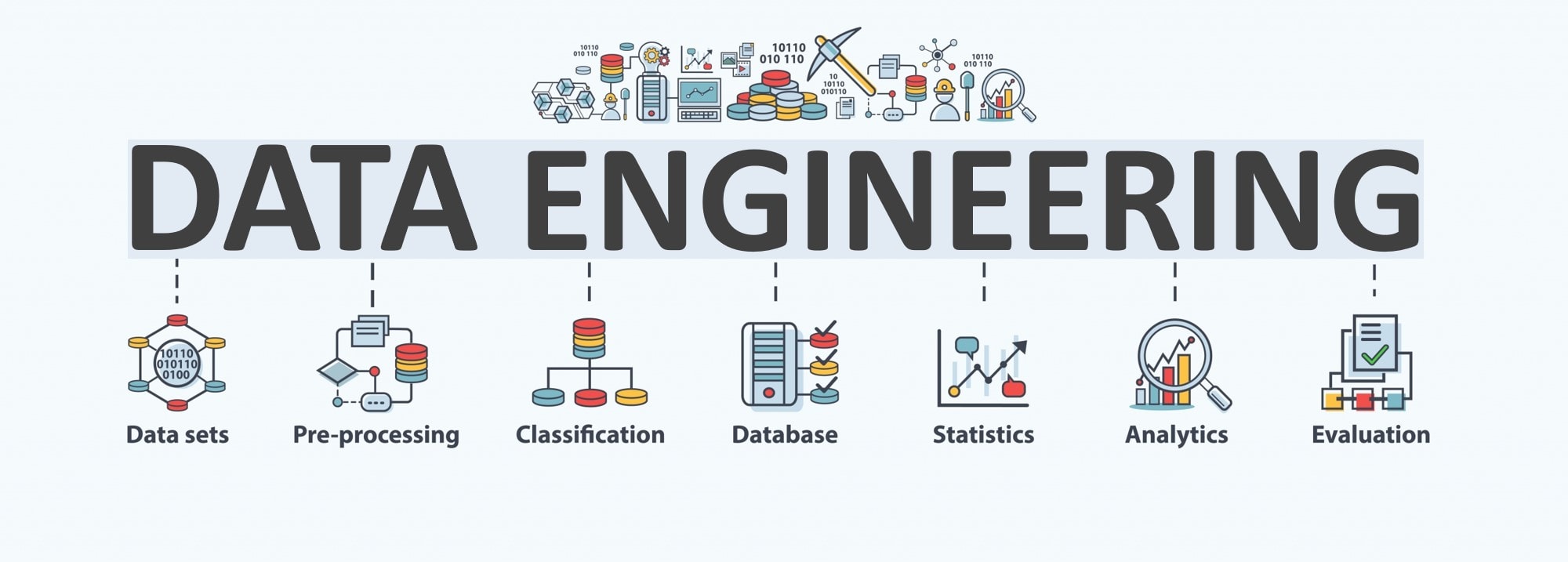10 Best Engineering Degrees in India 2025
Engineering has always been the cornerstone of innovation, shaping the world we live in today. Whether it’s designing cutting-edge technology, solving environmental challenges, or making medical breakthroughs, engineers are at the forefront of progress. But with so many disciplines to choose from, how do you decide which engineering degree aligns with your goals? Here, we dive deep into the 10 best engineering degrees in India 2025, offering insights, career prospects, and why these fields are worth exploring.
Best Engineering Degrees in India 2025
| Rank | Engineering Degree | Median Salary (2023) | Key Focus Areas |
|---|---|---|---|
| 1 | Aerospace Engineering | $130,720 | Aircraft, spacecraft, and satellites |
| 2 | Big Data Engineering | $127,895 | Data architecture and analytics |
| 3 | Nuclear Engineering | $125,460 | Nuclear energy and safety systems |
| 4 | Chemical Engineering | $112,100 | Fuel, food, pharmaceuticals |
| 5 | Systems Engineering | $111,462 | Hardware-software integration |
| 6 | Electrical Engineering | $109,010 | Electronics, motors, and circuits |
| 7 | Health and Safety Engineering | $103,690 | Risk mitigation and safety protocols |
| 8 | Biomedical Engineering | $100,730 | Medical devices and healthcare tech |
| 9 | Mining and Geological Engineering | $100,640 | Resource extraction and safety |
| 10 | Environmental Engineering | $100,090 | Sustainable and eco-friendly solutions |
Best Engineering Degrees in India 2025
1. Aerospace Engineering: The Sky’s Not the Limit
Ever dreamt of designing rockets or satellites? Aerospace engineering is a field that literally takes you out of this world. These engineers specialize in creating vehicles that travel through air and space, requiring expertise in aerodynamics, propulsion systems, and materials science.
Why Choose Aerospace Engineering?
- High Salaries: With a median pay of $130,720, aerospace engineers are among the top earners in the industry.
- Exciting Projects: Think Mars rovers, supersonic jets, and commercial space travel.
- Future Growth: The demand for satellite-based communication and defense technologies is skyrocketing.
Real-World Example:
NASA’s Perseverance Rover was designed by a team of aerospace engineers who tackled challenges like extreme temperatures and rugged terrain on Mars. Their work showcases the innovative potential of this field.
2. Big Data Engineering: Harnessing the Power of Information
In a world drowning in data, big data engineers are the heroes who make sense of it all. They build the architecture needed to collect, store, and analyze massive datasets, enabling businesses to make informed decisions.
What Makes It Special?
- Lucrative Earnings: Big data engineers earn a median salary of $127,895.
- Booming Industry: With companies investing heavily in AI and machine learning, this field is growing exponentially.
- Diverse Applications: From predicting consumer behavior to improving healthcare outcomes, data engineering touches every industry.
Fun Fact:
Google processes over 40,000 search queries per second. Behind such mind-boggling numbers are big data engineers who ensure the systems run smoothly.
3. Nuclear Engineering: Powering the Future Safely
Nuclear engineers play a pivotal role in generating clean energy and advancing medical technologies like radiation therapy. They design nuclear reactors, ensure their safety, and innovate in the realm of energy storage and transfer.
Why It Matters?
- Top Salaries: At $125,460 median pay, it’s a financially rewarding career.
- Sustainability: Nuclear energy is a key player in reducing carbon emissions.
- Advanced Research: From fusion reactors to radioactive waste management, this field offers endless challenges.
Inspiring Story:
Chernobyl’s aftermath led to revolutionary safety protocols designed by nuclear engineers, making modern reactors safer than ever.
4. Chemical Engineering: From Molecules to Mega Projects
Chemical engineers transform raw materials into everyday products, such as fuel, plastics, and medicines. They blend chemistry, physics, and engineering principles to solve industrial challenges.
What Sets It Apart?
- Versatility: Work in sectors like pharmaceuticals, food processing, and renewable energy.
- Attractive Pay: Median salary of $112,100.
- Collaboration: Chemical engineers often work in multidisciplinary teams, combining creativity with technical know-how.
Case Study:
Pfizer’s COVID-19 vaccine relied on chemical engineers to optimize production processes, ensuring millions of doses were safely distributed.
5. Systems Engineering: The Backbone of Modern Enterprises
Systems engineers ensure that complex projects—whether in IT, manufacturing, or aerospace—run seamlessly. They act as the bridge between hardware and software teams, focusing on integration and optimization.
Why Pursue Systems Engineering?
- Strong Demand: Companies rely on systems engineers to manage tech infrastructure.
- High Earnings: Average salary of $111,462.
- Problem Solvers: Systems engineers thrive on creating solutions for intricate problems.
Real-World Impact:
Amazon’s Prime delivery system, which operates at lightning speed, owes its efficiency to systems engineers who designed its logistics infrastructure.
6. Electrical Engineering: Powering the Modern World
Electrical engineering is one of the oldest and most versatile branches of engineering. From designing household electronics to revolutionizing global energy systems, electrical engineers are indispensable in today’s tech-driven world.
Why Choose Electrical Engineering?
- High Demand: Almost every industry relies on electrical systems, from healthcare to aerospace.
- Attractive Pay: The median annual salary for electrical engineers is $109,010 (2023).
- Versatility: Work on a wide range of projects like renewable energy systems, robotics, and communication technologies.
What Do Electrical Engineers Do?
Electrical engineers design, develop, and test electrical systems and components such as motors, circuits, and power generation equipment. They also focus on integrating these systems into larger networks, like smart grids or advanced communication systems.
Real-World Impact:
The development of 5G networks owes much to electrical engineers, who optimized communication infrastructure to enable faster and more reliable internet connectivity.
Future Trends in Electrical Engineering:
- Renewable Energy: Engineers are innovating solar, wind, and battery technologies to combat climate change.
- IoT and Smart Homes: The integration of electrical systems into everyday devices is creating a boom in smart technology.
- Automation: From factories to vehicles, electrical engineers are advancing robotics and automation.
7. Systems Engineering: The Integrator of Innovation
Systems engineering is all about connecting the dots. These professionals manage and oversee complex systems, ensuring that all components—from hardware to software—work together seamlessly.
Why Pursue Systems Engineering?
- High Earnings: With an average salary of $111,462, systems engineers are well-compensated for their expertise.
- Broad Applications: Opportunities exist in industries like aerospace, healthcare, IT, and manufacturing.
- Problem Solving: Systems engineers thrive on tackling complex, interdisciplinary challenges.
Key Responsibilities:
- Technical Oversight: Ensuring systems function optimally throughout their lifecycle.
- Risk Management: Identifying and mitigating potential system failures.
- Communication: Bridging the gap between technical and non-technical teams.
Example in Action:
SpaceX’s Falcon Heavy rocket required intricate systems engineering to ensure its 27 engines fired in perfect unison, a feat of both precision and coordination.
Emerging Trends:
- AI-Driven Systems: Leveraging artificial intelligence for smarter system management.
- Cybersecurity: Protecting integrated systems from potential cyber threats.
- Smart Cities: Developing urban infrastructure that integrates seamlessly with IoT.
8. Chemical Engineering: Innovating Everyday Life
Chemical engineers turn raw materials into products we use daily, from fuels to medicines to biodegradable plastics. Combining chemistry, physics, biology, and mathematics, they play a vital role in creating sustainable solutions.
Why Choose Chemical Engineering?
- High Earnings: Median pay is $112,100 annually.
- Diverse Career Paths: Opportunities in pharmaceuticals, energy, food production, and more.
- Global Impact: Work on projects that tackle pollution, energy shortages, and food security.
What Do Chemical Engineers Do?
Chemical engineers develop processes for large-scale manufacturing. For example, they design systems to produce renewable fuels or optimize drug production for pharmaceutical companies.
Case Study:
The production of insulin, a life-saving medication, depends heavily on chemical engineers who streamline its manufacturing to meet global demand.
Sustainability in Focus:
- Developing biofuels to reduce reliance on fossil fuels.
- Innovating water purification systems for clean drinking water.
- Designing eco-friendly materials to minimize environmental impact.
9. Nuclear Engineering: Safeguarding Clean Energy
Nuclear engineering focuses on harnessing the power of the atom. Whether it’s generating electricity through nuclear reactors or developing medical technologies like radiation therapy, this field is a cornerstone of modern energy and healthcare.
Why It’s a Top Choice?
- Exceptional Pay: Median annual salary of $125,460.
- Clean Energy: Nuclear energy is one of the most efficient and low-emission sources of power.
- Advanced Research: Work on groundbreaking projects like fusion energy.
What Nuclear Engineers Do?
- Energy Production: Design and operate nuclear power plants.
- Safety Protocols: Develop systems to ensure safe operation of reactors.
- Medical Innovations: Create equipment for radiation therapy and imaging.
Inspiring Development?
The International Thermonuclear Experimental Reactor (ITER) project aims to demonstrate the feasibility of fusion energy, a virtually limitless source of power, thanks to nuclear engineers.
Challenges and Opportunities:
- Waste Management: Innovating ways to safely store nuclear waste.
- Fusion Energy: Developing technology to make fusion reactors a commercial reality.
- Public Perception: Educating the public about the safety and benefits of nuclear power.
10. Data Engineering: Turning Numbers Into Knowledge
In the age of information, data engineering is critical to transforming raw data into actionable insights. These professionals design systems that store, process, and analyze vast amounts of data, enabling businesses to make data-driven decisions.
Why Choose Data Engineering?
- Top Earnings: A median salary of $127,895.
- High Demand: Companies are increasingly relying on big data for decision-making.
- Wide Applications: Work spans finance, healthcare, retail, and more.
What Do Data Engineers Do?
- Build and optimize data pipelines.
- Ensure data integrity and security.
- Collaborate with data scientists to implement machine learning models.
Real-World Example:
Amazon’s recommendation system, which predicts what customers might want to buy, was built by data engineers who streamlined vast datasets for AI algorithms.
Emerging Trends:
- Cloud Computing: Managing data on platforms like AWS and Google Cloud.
- AI Integration: Enhancing machine learning models for predictive analytics.
- Data Ethics: Ensuring privacy and ethical handling of information.
11. Environmental Engineering: Creating a Sustainable Future
Environmental engineers work at the intersection of engineering and environmental science, developing solutions to issues like pollution, waste management, and resource conservation. This field is perfect for those passionate about sustainability.
Why Choose Environmental Engineering?
- Meaningful Work: Make a tangible impact on the planet’s health.
- Growing Demand: With climate change concerns rising, the need for environmental engineers is increasing.
- Competitive Salary: Median pay is $100,090 annually.
What Do Environmental Engineers Do?
- Design systems for waste treatment and water purification.
- Develop renewable energy projects.
- Create strategies to combat air and soil pollution.
Example in Action:
Singapore’s water management system, which recycles wastewater into drinkable water, is a prime example of environmental engineering at its finest.
Future Outlook:
- Green Buildings: Designing eco-friendly infrastructure.
- Climate Resilience: Developing systems to mitigate the effects of natural disasters.
- Carbon Capture: Innovating ways to reduce greenhouse gas emissions.
FAQs About the 10 Best Engineering Degrees
1. Which engineering degree is best for a high salary?
Aerospace, big data, and nuclear engineering are among the highest-paying fields, with median salaries exceeding $125,000 annually.
2. What is the most in-demand engineering degree?
Electrical engineering and systems engineering are highly sought after due to their broad applications across multiple industries, including tech, healthcare, and energy.
3. Which engineering degree is the easiest to pursue?
The “easiest” degree depends on your strengths. Environmental and health and safety engineering may be less math-intensive but still require a strong understanding of science and problem-solving skills.
4. How do I decide which engineering degree to choose?
Evaluate your interests, strengths, and career goals. Research job opportunities, salary potential, and industry growth in fields that excite you.
5. Is a master’s degree necessary for engineering?
Not always. While a bachelor’s degree is sufficient for many roles, advanced positions or specialized fields like biomedical or nuclear engineering may require a master’s or doctorate.
6. Are engineering jobs stable?
Yes, engineering is a stable profession. Many industries rely on engineers, making them integral to global economic growth.
7. What skills are important for engineers?
Problem-solving, analytical thinking, creativity, technical expertise, teamwork, and strong communication skills are essential for success in engineering.
8. Can engineers work remotely?
Yes, some engineering fields, like software, systems, and data engineering, offer remote work opportunities, while others, like mining or environmental engineering, require on-site presence.
9. How long does it take to become an engineer?
A bachelor’s degree typically takes four years, while a master’s adds one to two years. Some fields may require additional certifications or licensure.
10. What’s the difference between electrical and electronics engineering?
Electrical engineering focuses on large-scale power systems, while electronics engineering deals with smaller electronic circuits and devices.
Conclusion: Engineering the Future
Choosing an engineering degree is more than picking a career path—it’s about deciding how you’ll impact the world. Whether you dream of exploring space, innovating medical technologies, designing sustainable systems, or building smarter cities, there’s an engineering field tailored for you.
The 10 best engineering degrees discussed here offer exceptional opportunities for growth, innovation, and financial rewards. Each discipline has its unique challenges and benefits, but all share one thing in common: the potential to shape the future.
Final Tip: Follow your passion and consider the long-term impact you want to make. With dedication, curiosity, and the right education, you can become part of the next generation of world-changing engineers.
Start your journey today—your future, and the world, awaits your brilliance













![Top 10 Cleanest Cities in India [year] Your Guide to India’s Most Immaculate Urban Destination Top 10 Cleanest Cities in India](https://eleven-best.com/wp-content/uploads/2024/11/cleanest-city-of-india.webp)
![10 Best Universities for Software Engineering in India [year] 10 Best Universities for Software Engineering](https://eleven-best.com/wp-content/uploads/2024/11/IIT-Bombay.jpg)
![10 Best Colleges for MBA in India [year] 10 Best MBA Colleges in India](https://eleven-best.com/wp-content/uploads/2024/11/1727414396phpz3V8U3.jpeg)